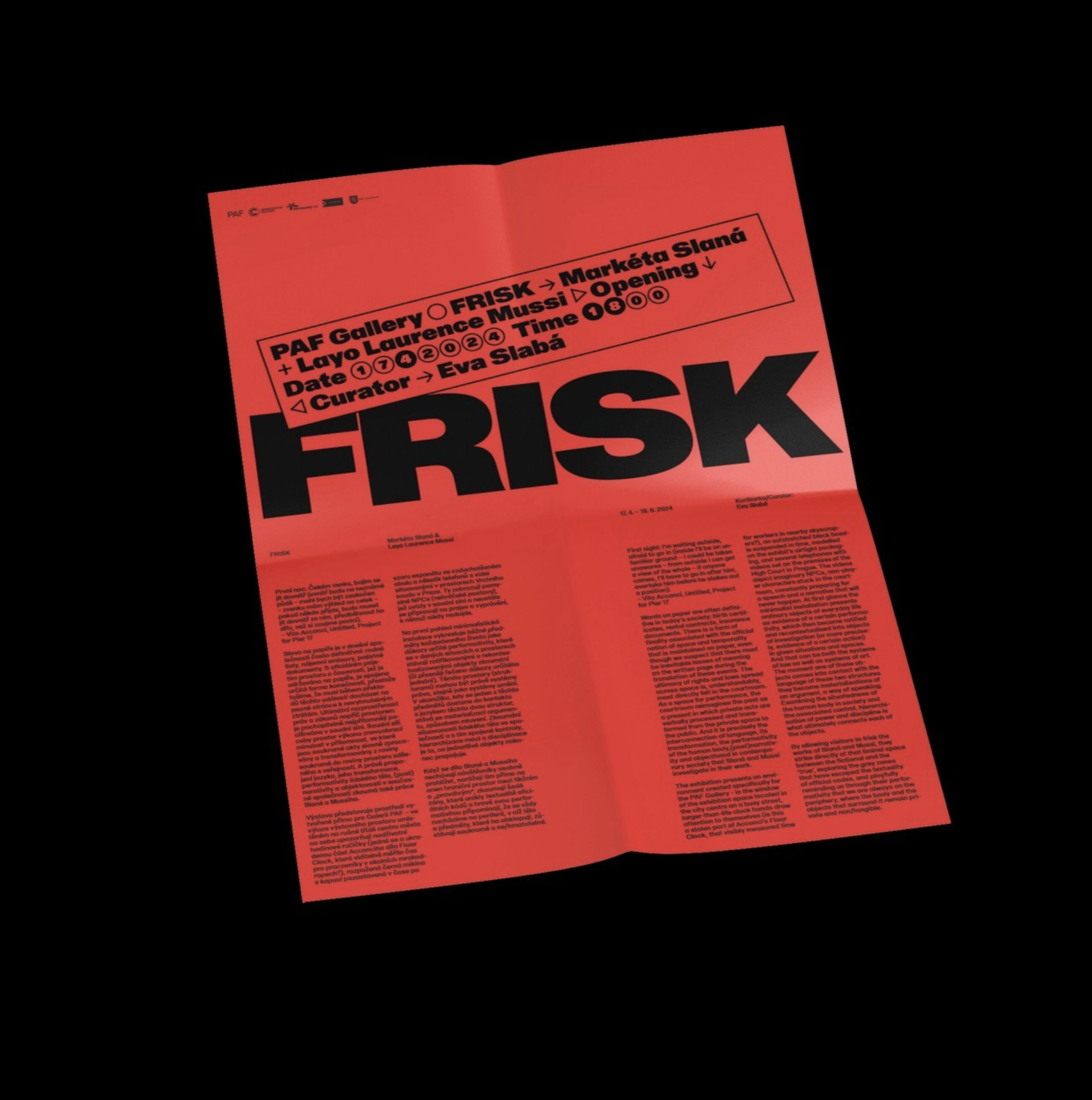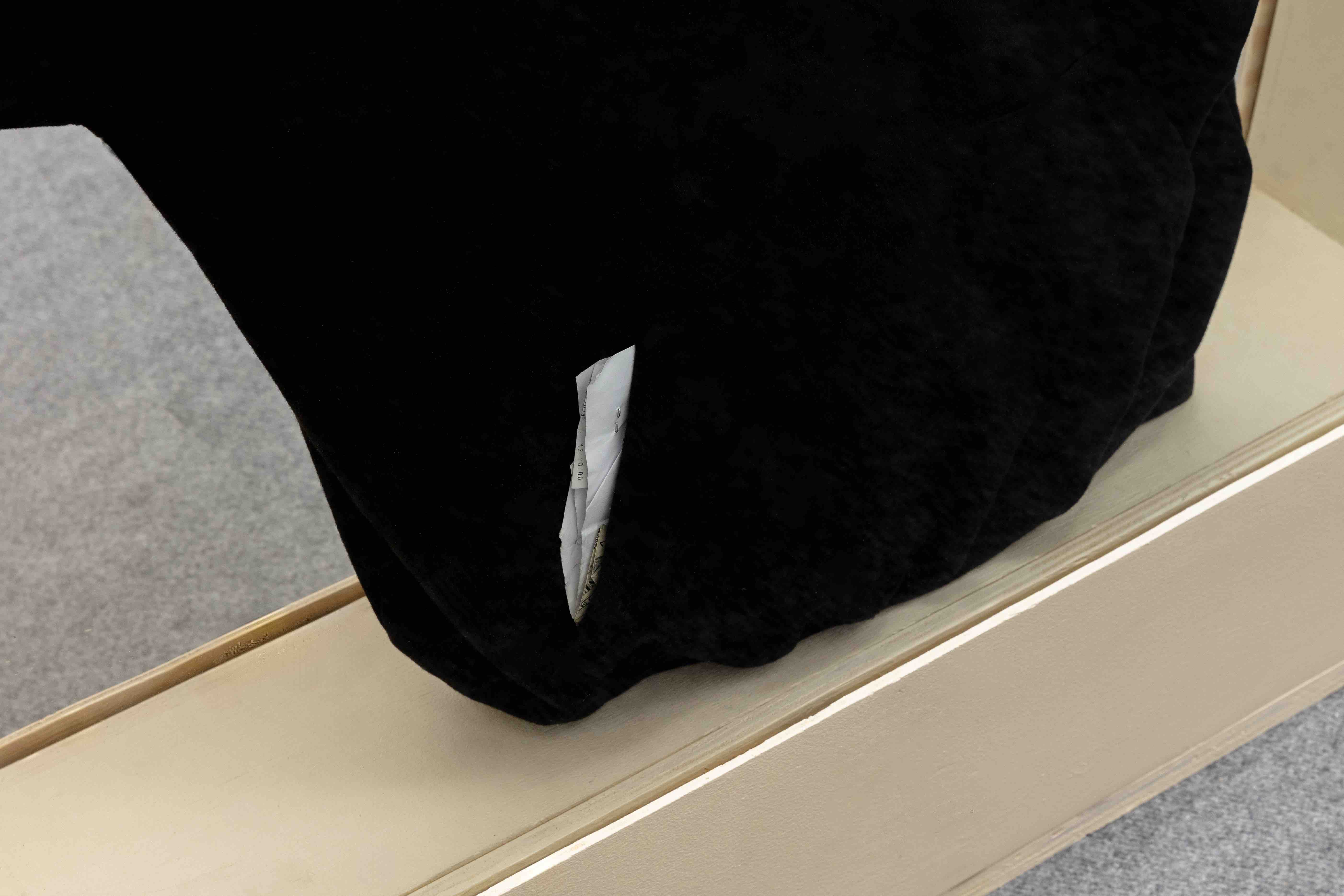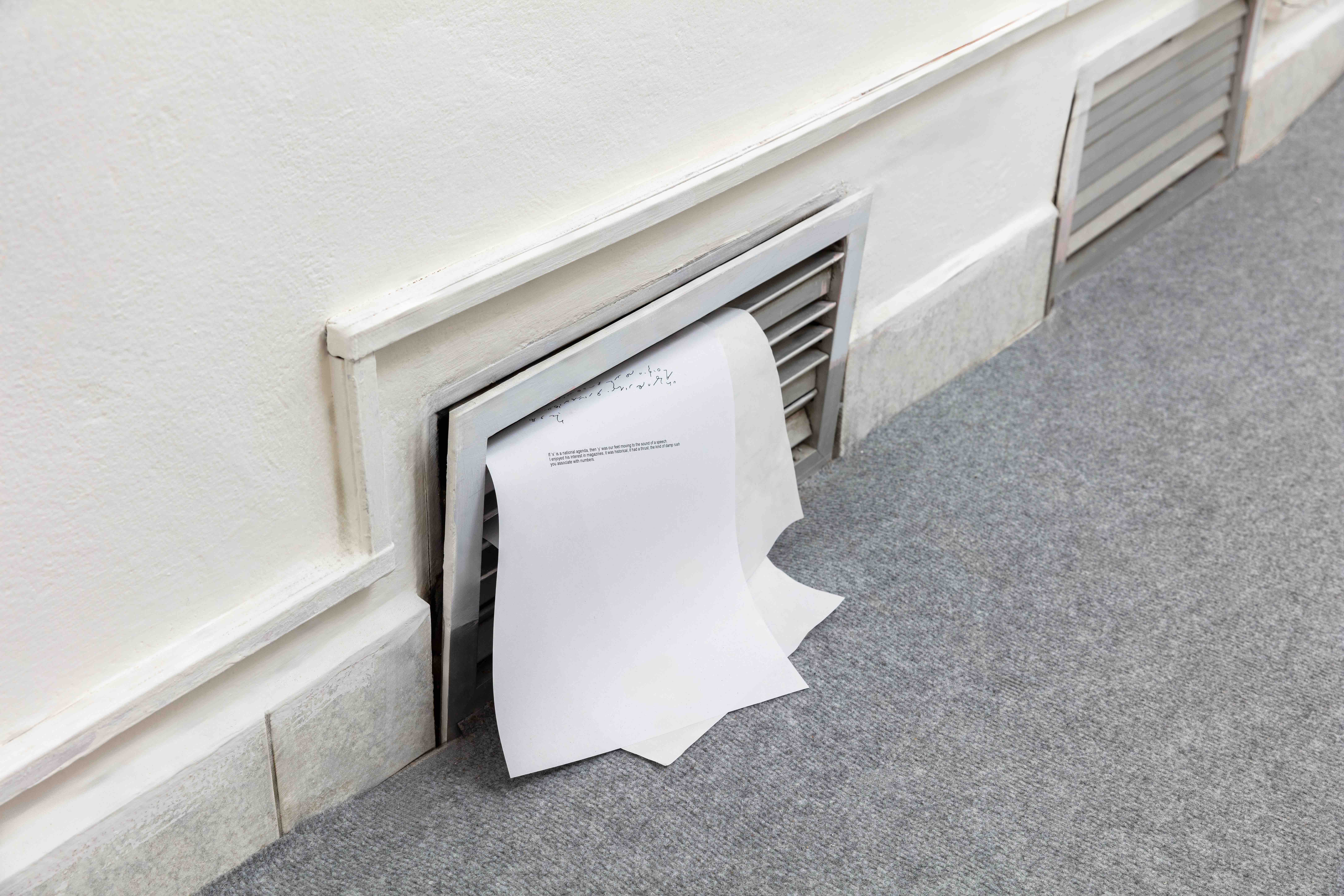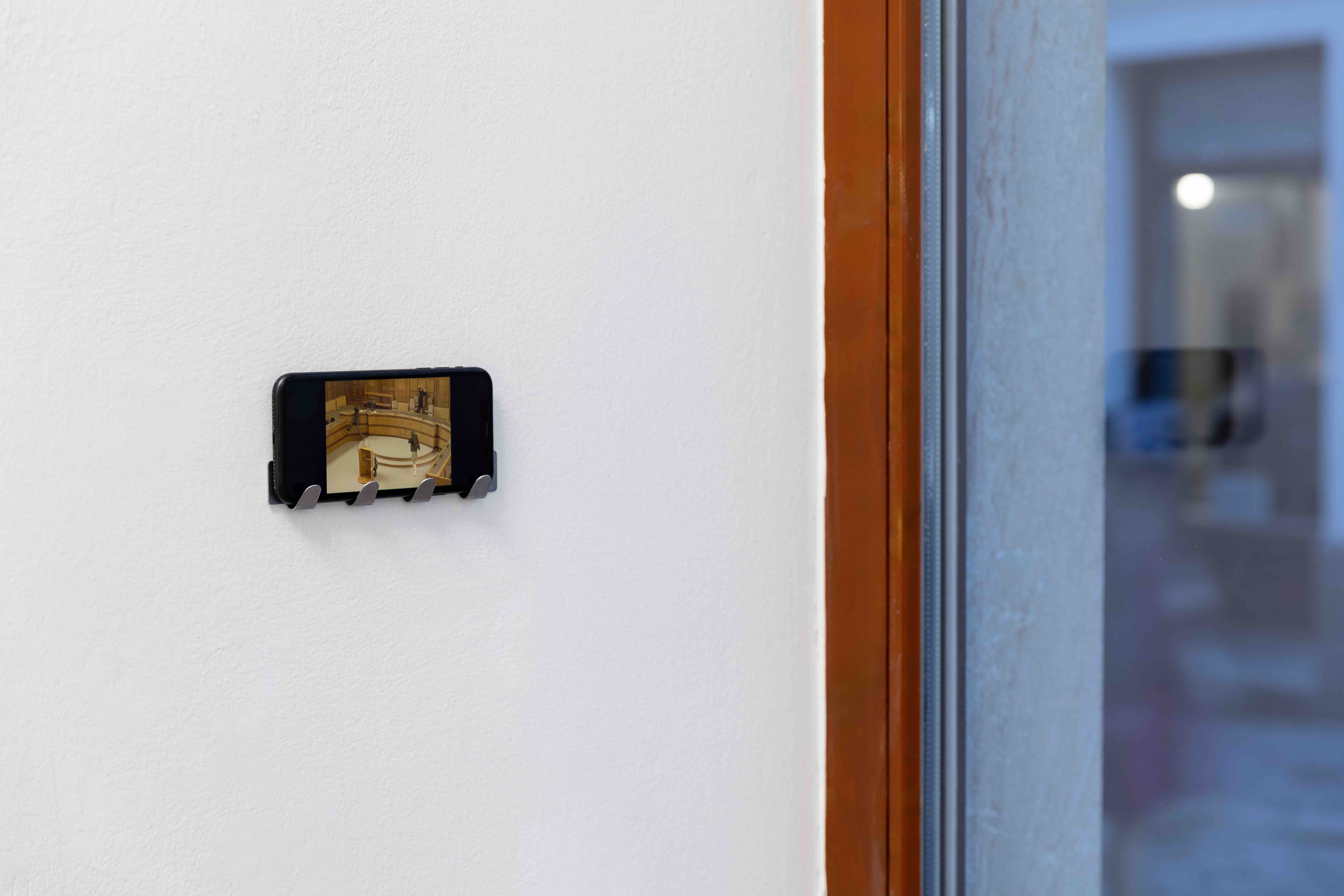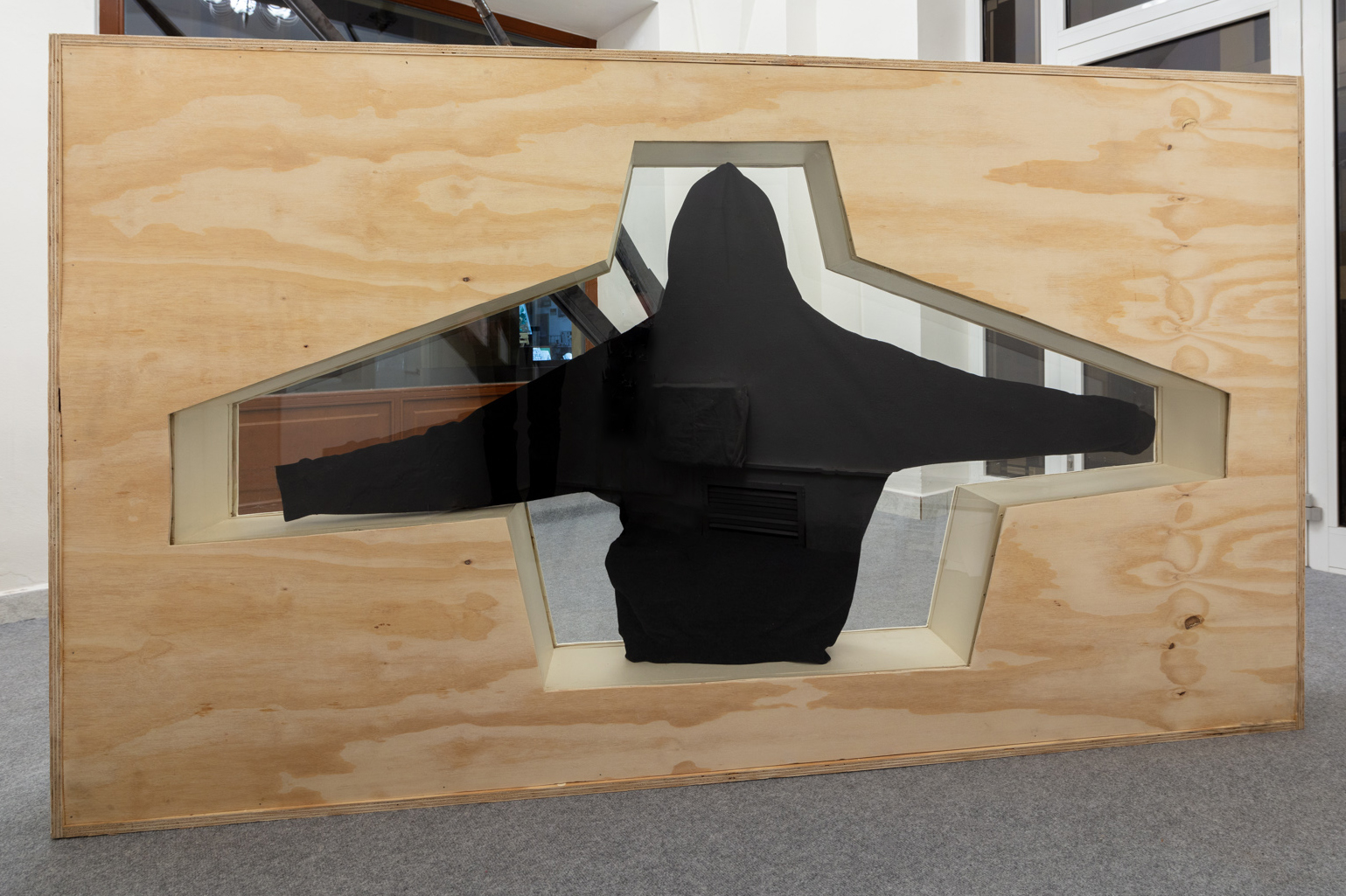FRISK
April 18, 2024 — June 18, 2024
PAF Gallery, Olomouc, Czechia
Artists: Markéta Slaná & Layo Laurence Mussi
The duo exhibition by Markéta Slaná and Layo Laurence Mussi presents an environment created specifically for the PAF Gallery. The videos, combined with the installation, touches upon the questioning of the objecthood of everyday items, which in certain situations and spaces are transformed into objects of investigation (or more precisely, evidence). The alteration of their relationship to the individual, the narrative effect of crime and the ultimate expansiveness of the law across space examines the situatedness of the body in human society and the disciplinary process associated with it.

First night: I’m waiting outside, afraid to go in (inside I’ll be on unfamiliar ground – I could be taken unawares – from outside I can get a view of the whole – if anyone comes, I’ll have to go in after him, overtake him before he stakes out a position).
– Vito Acconci, Untitled, Project for Pier 17
Words on paper are often definitive in today's society: birth certificates, rental contracts, insurance documents. There is a form of finality associated with the official notion of space and temporality that is maintained on paper, even though we suspect that there must be inevitable losses of meaning on the written page during the translation of these events. The ultimacy of rights and laws spread across space is, understandably, most directly felt in the courtroom. As a space for performance, the courtroom reimagines the past as a present in which private acts are verbally processed and transformed from the private space to the public. And it is precisely the interconnection of language, its transformation, the performativity of the human body,(post)narrativity and objecthood in contemporary society that Slaná and Mussi investigate in their work.



The exhibition presents an environment created specifically for the PAF Gallery - in the window of the exhibition space located in the city centre on a busy street, larger-than-life clock hands draw attention to themselves (is this a stolen part of Acconci's Floor Clock, that visibly measured time for workers in nearby skyscrapers?), an outstretched black hoodie suspended in time, modelled on the exhibit's airtight packaging, and several telephones with videos set on the premises of the High Court in Prague. The videos depict imaginary NPCs, non-player characters stuck in the courtroom, constantly preparing for a speech and a narrative that will never happen. At first glance the minimalist installation presents ordinary objects of everyday life as evidence of a certain performativity, which then become ratified and recontextualised into objects of investigation (or more precisely, evidence of a certain action) in given situations and spaces. And that can be both the systems of law as well as systems of art. The moment one of these objects comes into contact with the language of these two structures they become materialisations of an argument, a way of speaking. Examining the situatedness of the human body in society and the associated control, hierarchisation of power and discipline is what ultimately connects each of the objects.
By allowing visitors to frisk the works of Slaná and Mussi, they strike directly at that liminal space between the fictional and the 'true', exploring the grey zones that have escaped the textuality of official codes, and playfully reminding us through their performativity that we are always on the periphery, where the body and the objects that surround it remain private and non/tangible.
